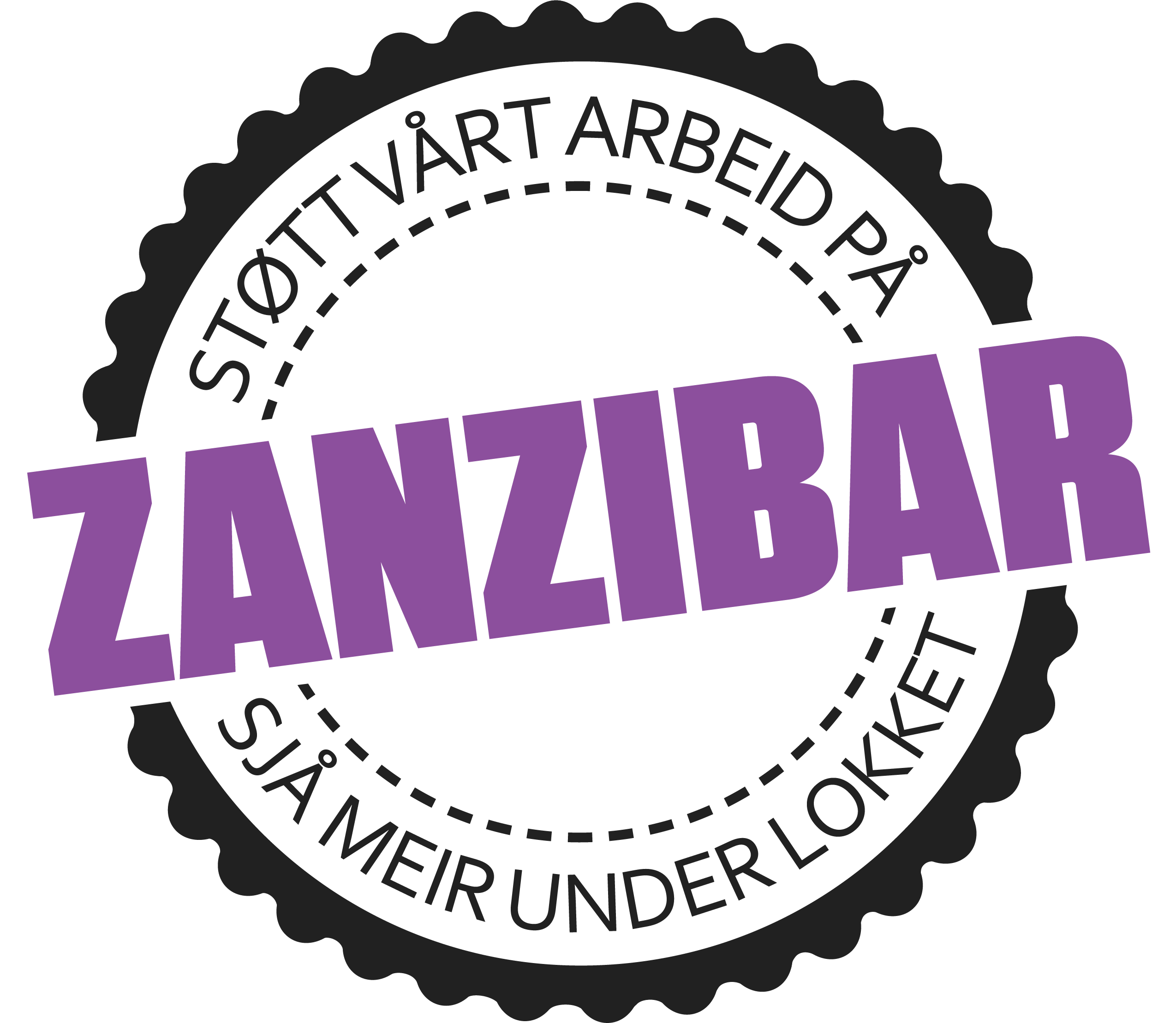THE HISTORY OF OUR WORK IN ZANZIBAR!
It all started in the autumn of 2015. I am a farmer with egg, beef and diary production. Together with two other colleages, we had several years earlier established Sunnmørsegg as a local brand in Sunnmøre, Norway. I was driving my car when the phone rang.
Hello! It's John John! I didn’t know John John from before, but he introduced himself and told me that he was sittting on a bench outside a shop in the city center of Ålesund. He had seen the poster that presented Sunnmørsegg with the yellowest egg yolks you can imagine. He briefly explained to me that he had been to Zanzibar many times in the last 12-15 years and that he had an idea that local women could keep chickens and produce eggs with yellow yolks for the tourist industry on the island. Then came the question: Do you want to join an adventure and travel to Zanzibar to achieve this?
I am a person who thinks that it is important to be open to new things and opportunities so the answer came quite directly: YES! It was quiet at the other end of the phone call…. It seemed that it came a little abruptly, and he didn`t seemed to be used to people answering so quickly like me, saying yes directly through the phone. Today I will describe my answer as something that has made a new dimension in my life.
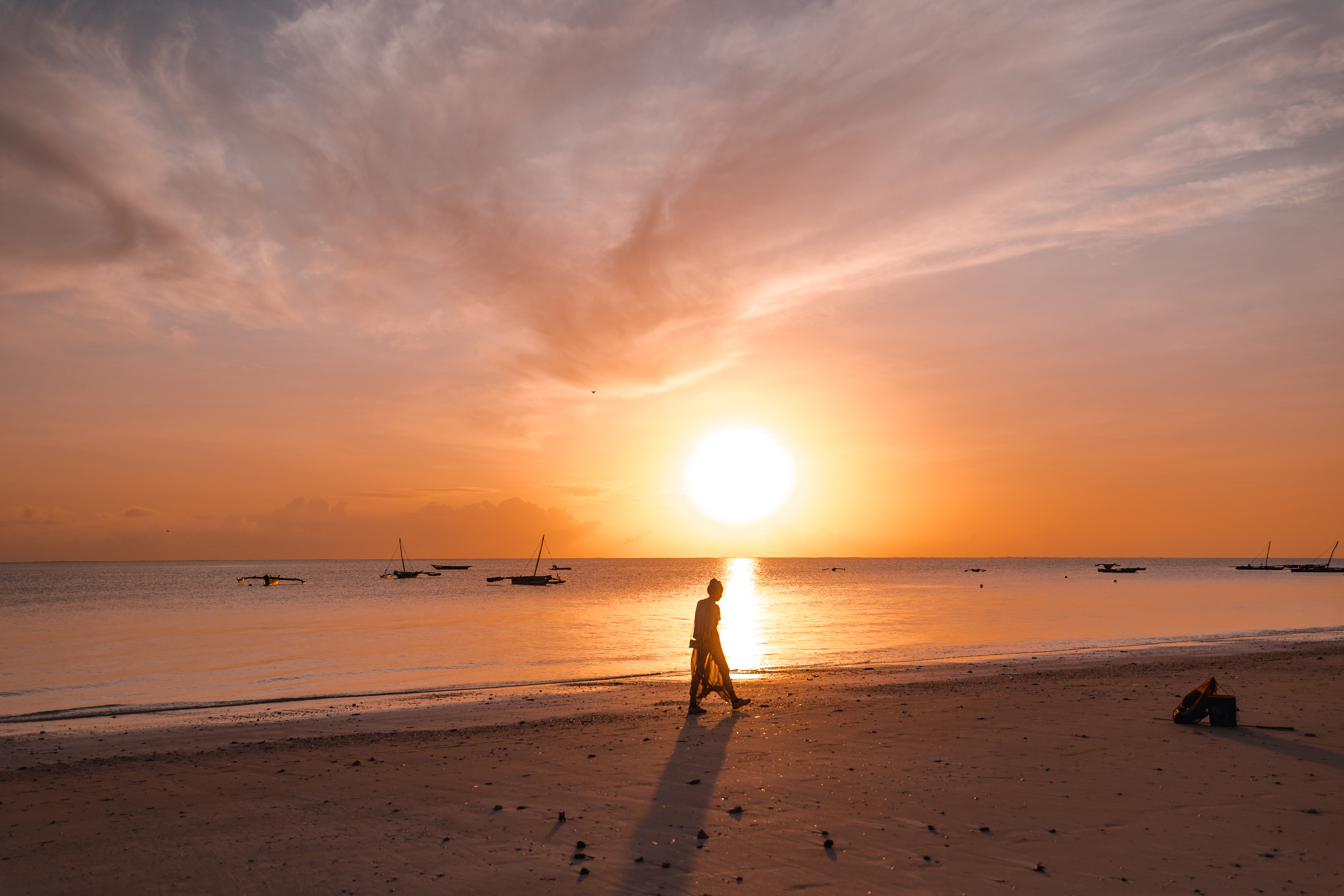
A few weeks later we met in Oslo for the first time and in January 2016 John John, me, my wife, Ellen, and some others formed an association that was to be the initiator of the project. Over the spring and summer we made plans and at the end of September that year I traveled to Zanzibar for the first time. This was my first trip to Africa, and with John John as my guide, we traveled around Zanzibar. I got to see a lot that tourists usually doesn’t get to see and some of what the tourists experience there. For me it was quite a culture shock!
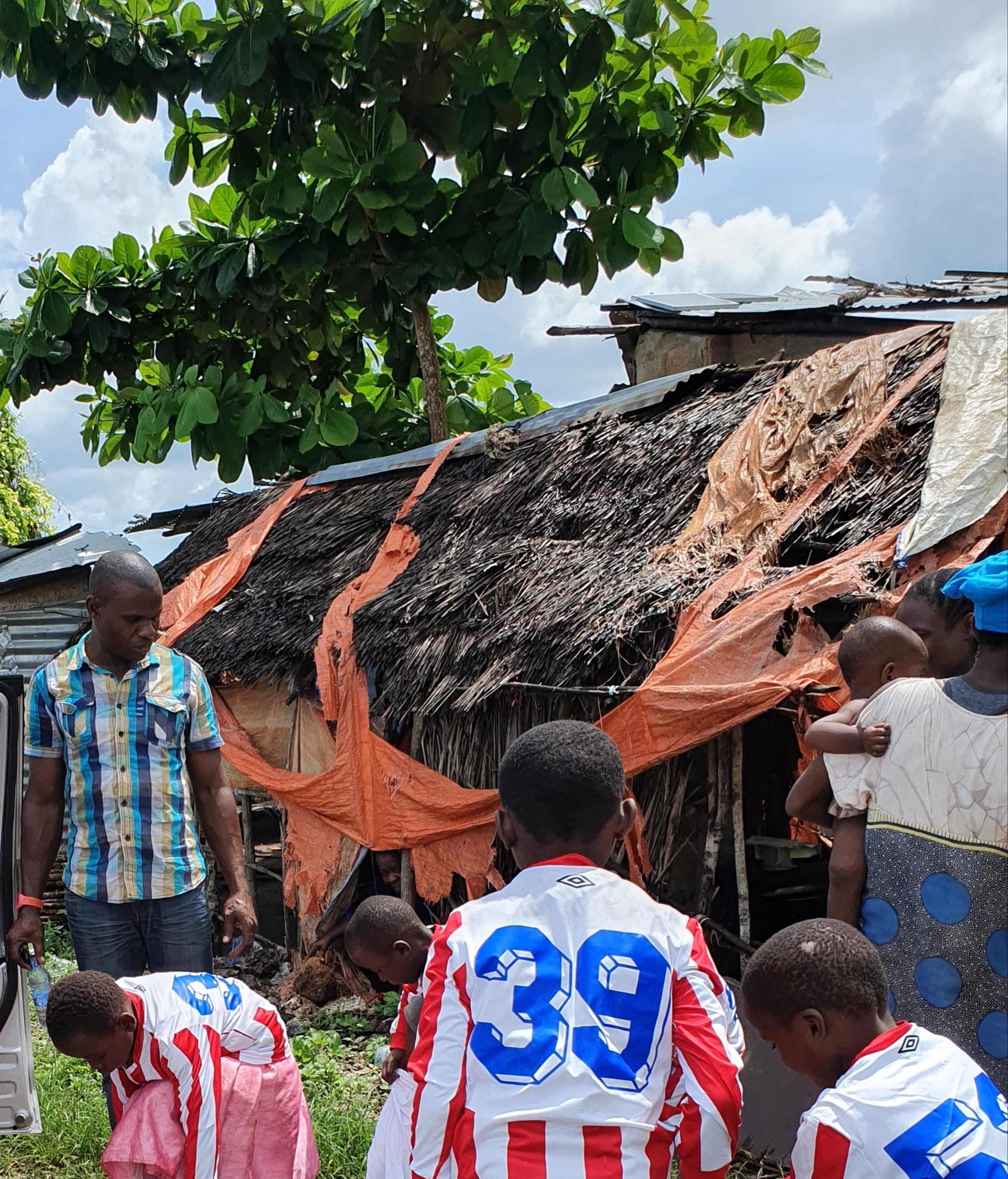
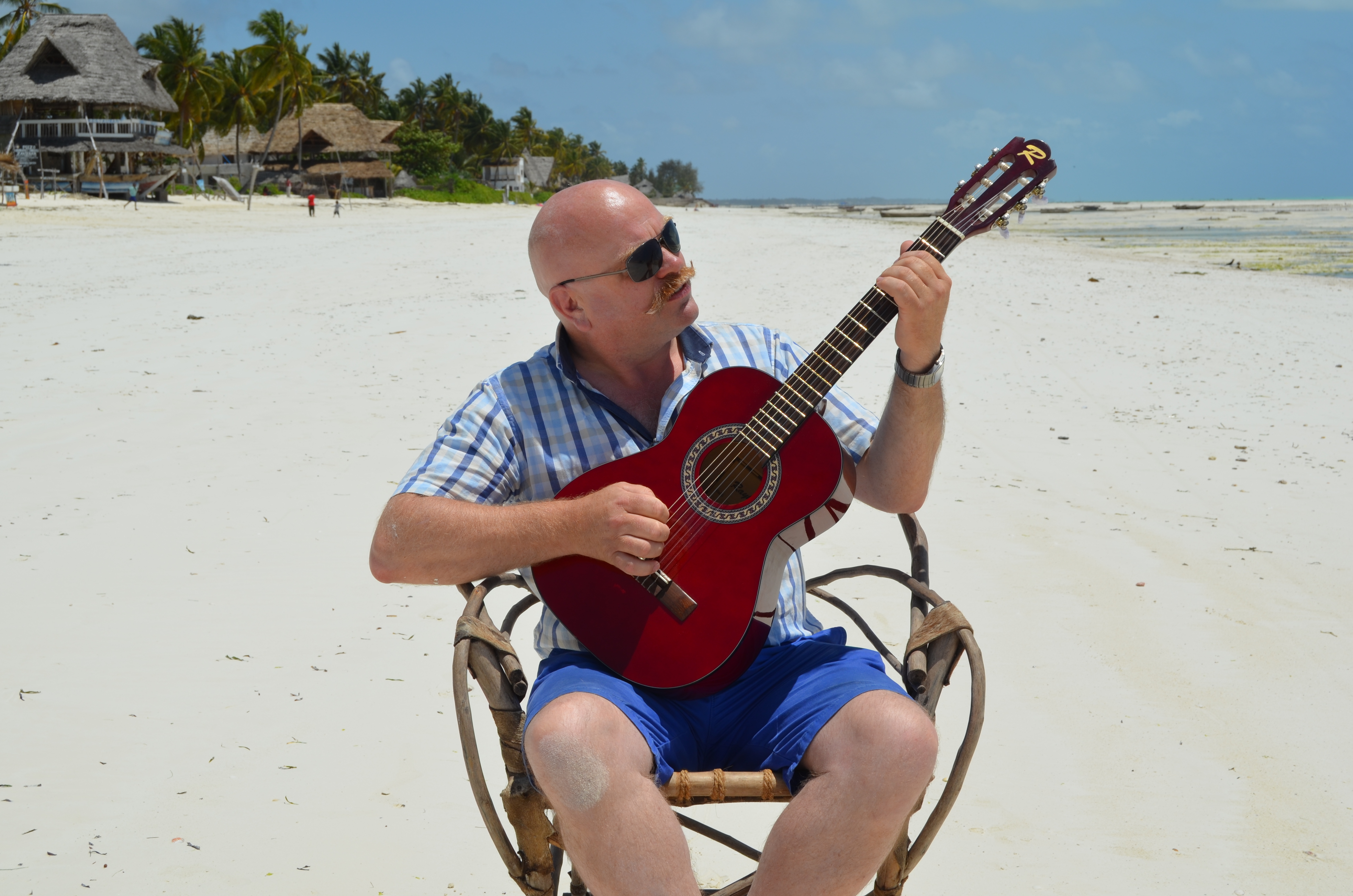
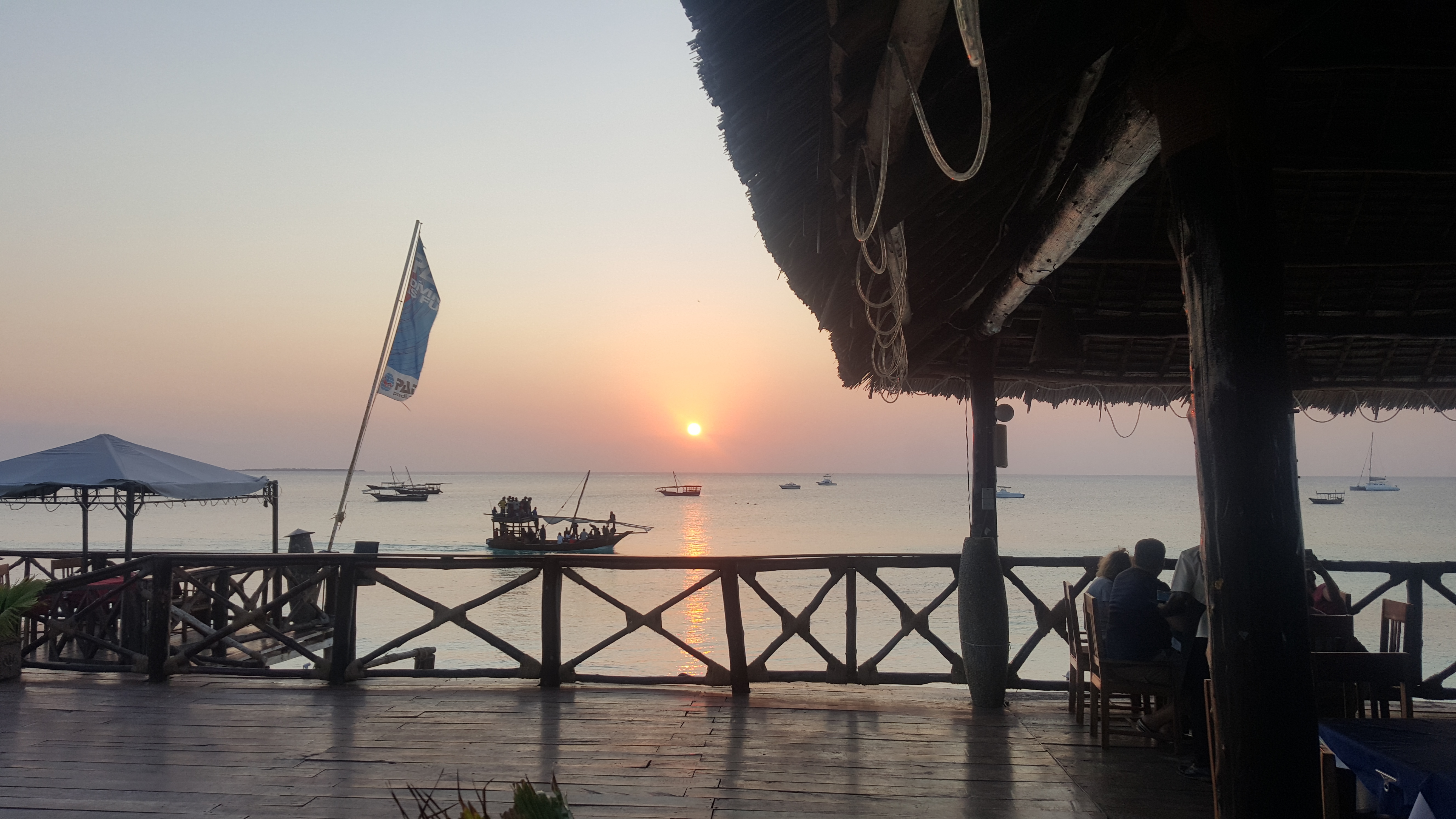
Zanzibar is a fantastic island outside Tanganika, and together they form the union with the name Tanzania. There are fantastic sandy beaches, hundreds of hotels in a row along the beaches, but also beaches without buildings. At the same time, it is very green and nice on the island. Stone Town, or Zanzibar City as it is also called, is the capital and this has been a central trading center in earlier times. In particular, the island is known for the spice trade. Today, the tourism industry accounts for 70 - 80% of the income of the island community. At the same time as all the tourists enjoy themselves on the fantastic beaches, a large part of the local population lives in great poverty. In fact, poverty is greater in Zanzibar than it is in mainland Tanzania. Life expectancy among the local population is actually less than 50 years on average and a pediatrician told me that young children who come to the hospital where he worked are mainly suffering from malnutrition.
We stayed in a very simple hotel and were served local eggs. These eggs had egg yolks that were about as white as the egg white. That’s very different from the way we are used to, European eggs normally have a yellow yalk. That’s probably why a lot of hotels import eggs with yellow egg yolks, so that the tourists get eggs that are more similar to what they are used to. We traveled around and we visited the market in Stone Town, I saw stacks of egg trays standing in front of the sun and realized very quickly that there was a lot of challenges for local egg production. At the same time, there had to be a potential in replacing imported egg with locally produced eggs with yellow yolks like the tourists wanted. This could really be something that created jobs, income and improvement on Zanzibar.
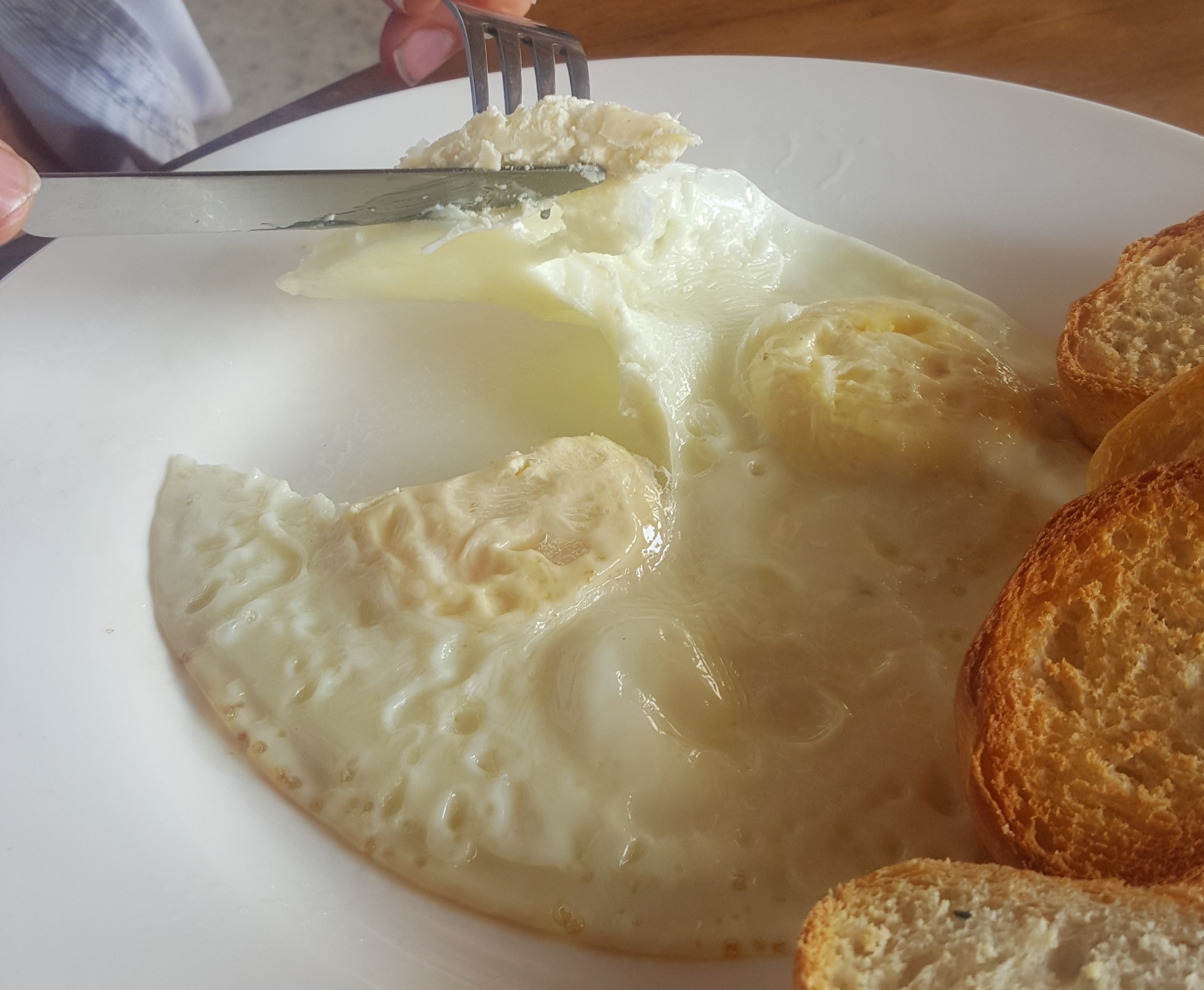
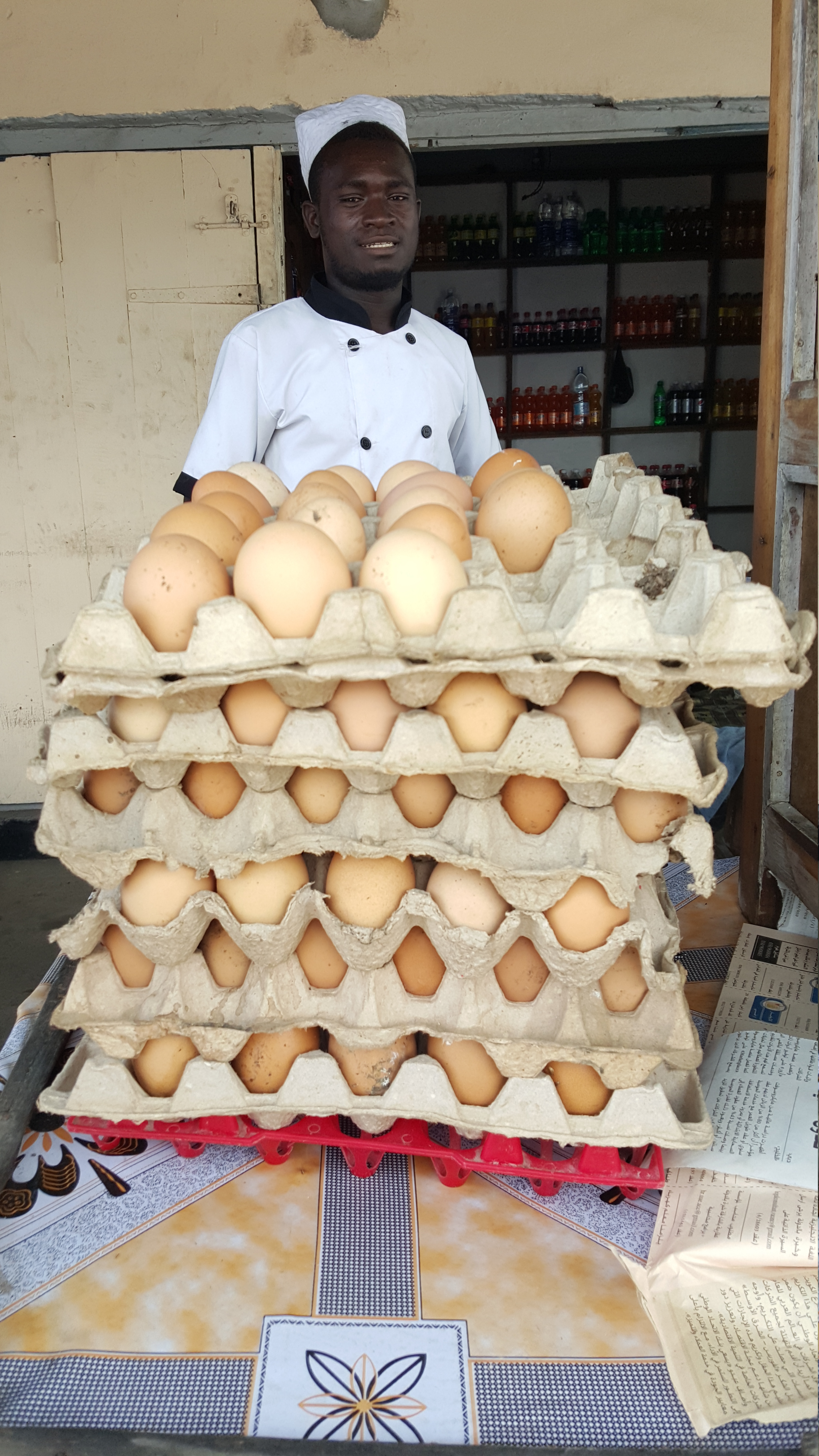
Back home in Norway we went into the think tank, both to find out how we could build up egg production on Zanzibar and to find out how we could finance it. I had the main plan and ideas, but it was a long way to realize it. After some time we came in contact with the Royal Norwegian Society for Development. They had been carrying out aid work in Africa for over 40 years and like a wonder they had their office in Dar es Salaam, the capitol of Tanzania, which is about two hours by express boat from Zanzibar. We made a cooperation agreement with the Royal Norwegian Society for Development, and we were now really in the process of making plans. The office in Dar es Salaam did a fantastic job for us and prepared a business plan based on our plans. They sent out a master's student who traveled around to the hotels on Zanzibar for weeks and did an extensive market research. This confirmed that there was a great potential for our idea.
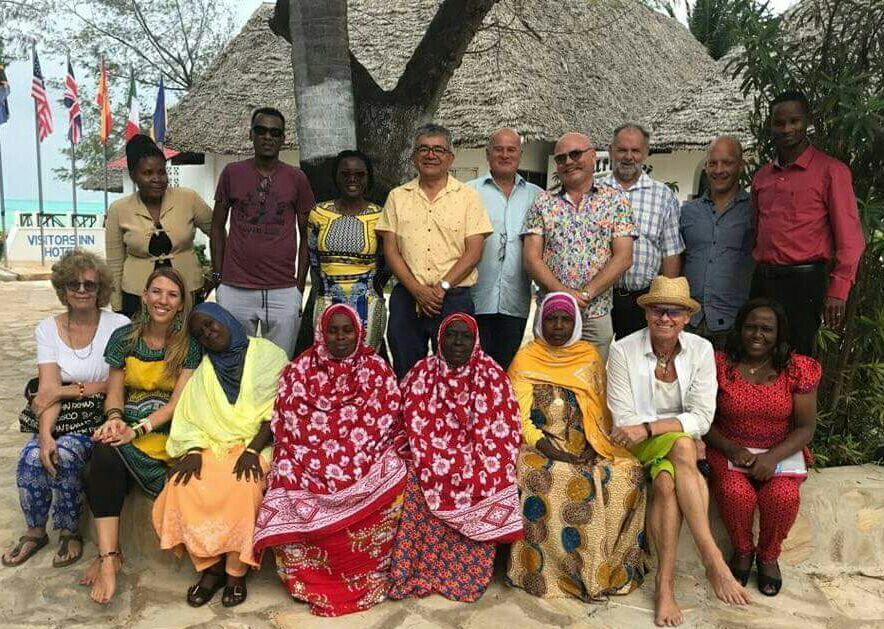
Then we start planning a big workshop on Zanzibar. This took place in September 2018, after two years of planning. It was the Royal Norwegian Society for Development that took care of the planning and implementation of the workshop and we were 18 participants, including four local women in the target group who only spoke Swahili. A while before the workshop, Leif from the area around Elverum in Norway, called me.. He said that he was involved in egg production in Tanzania and that he had extensive experience of aid work in Africa. I invited him to join the workshop and thanks to this invitation we are where we are today! Just before leaving for Zanzibar, Leif called again and said that it was his sister who took care of everything that had to do with chickens and egg production so she had to attend the workshop…. I now really had to use my persuasive abilities to get the Royal Norwegian Society for Development to bring one more person, but luckily we got a place for Leif's sister. When we entered the meeting room, there were nameplates in front of all the seats at the horseshoe-shaped table, but next to Leif the nameplate said Leif's sister. We were quite surprised when we met Leif and his sister for the first time. Because Leif’s sister was in fact Innocent, now the CEO of the company we have established in Zanzibar.
It turned out that Innocent was a veterinarian with his own practice at the same time as he was engaged in egg production with about 1,000 hens and a hatchery. He had been in Norway as a peace corps participant, now Norec. He completed the last two years of his education at what today is known as the Faculty of Biosciences, the Norwegian University of Life Sciences (NMBU) in Ås, Norway. Here he was acquainted with Leif and they developed a father-and-son relationship, and after his studies he worked for a few months in Leif's construction company. After returning to Tanzania, Leif has spent many months of the year in Tanzania and together they have built up the business that Innocent runs in Dar es Salaam. At Ås, Innocent had a professor named Lars Olav Eik. In the summer of 2019, Innocent and his family were in Norway, and we had a joint meeting with the professor at the university. This has opened many posibilites and doors for collaboration for us.
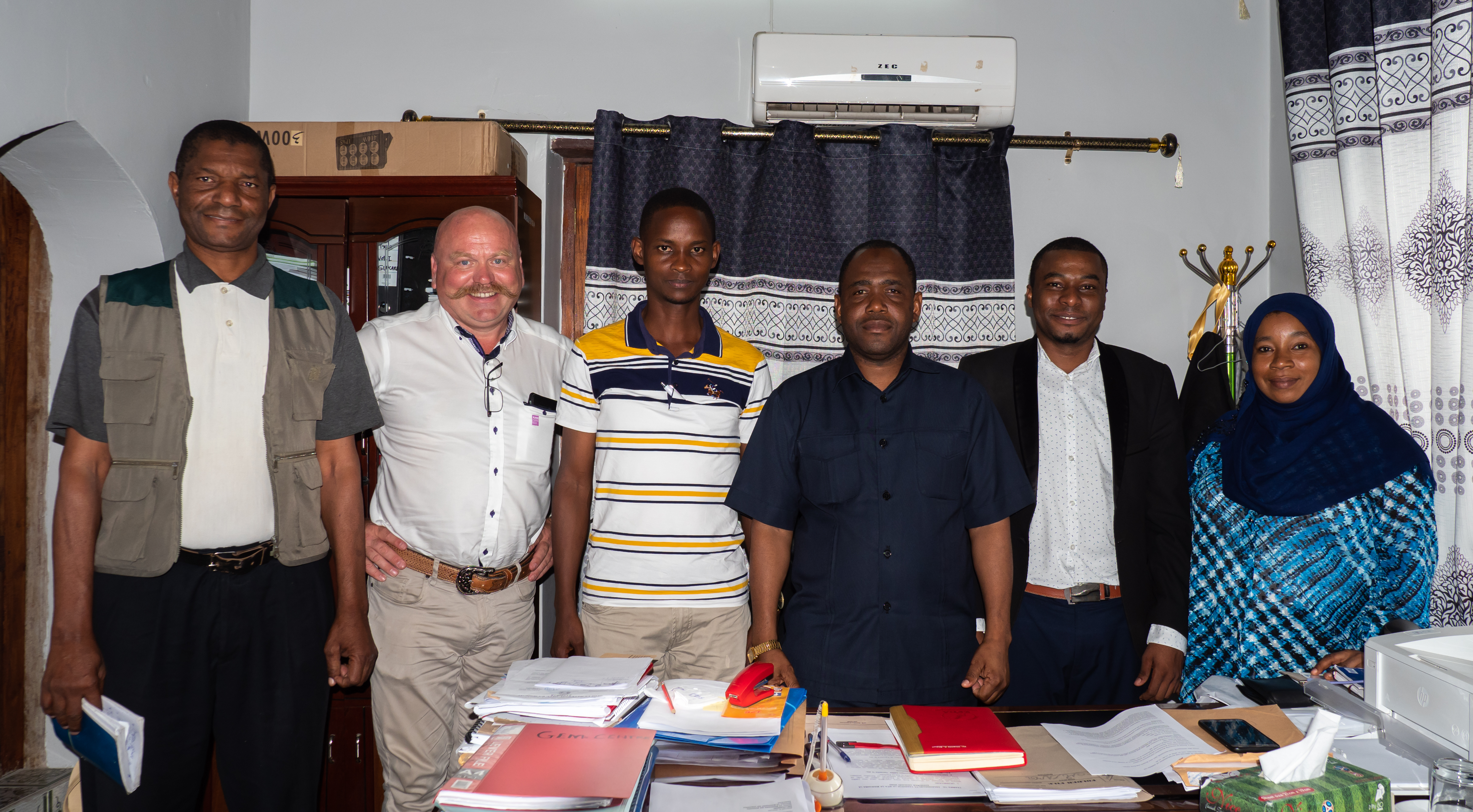
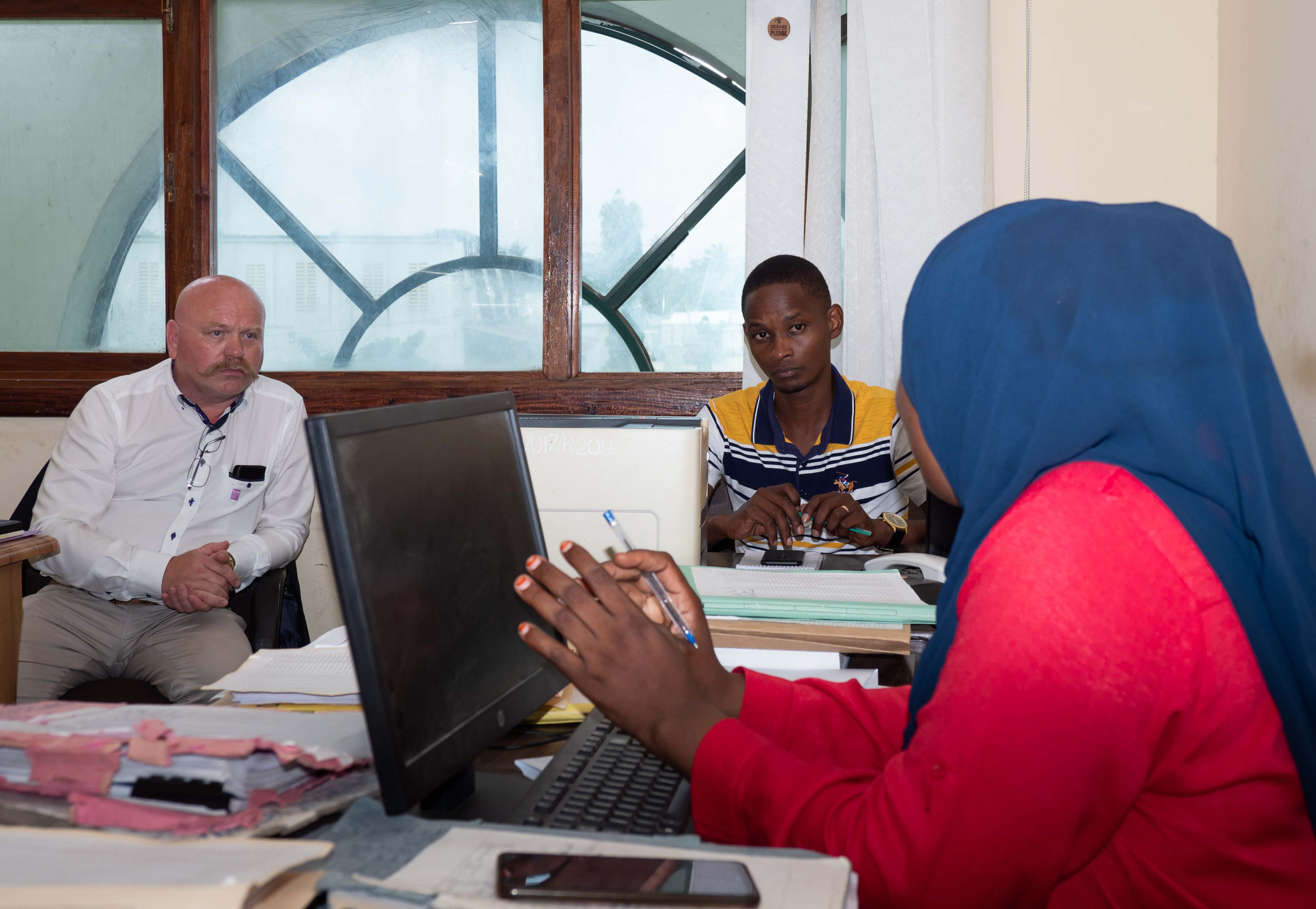
The workshop was very successful. What really impressed us, were the local women. The business plan was presented and we went through all the challenges one can experience as an egg producer in Africa, such as falling prices, increasing feed prices, diseases and more. The women were still just as enthusiastic and did not allow themselves to be intimidated. We also traveled around and looked at relevant places to establish the egg plan, and had meetings with possible partners. We had thought a lot about who we should invite into this project We agreed that what we wanted most was to bring in the two hatcheries that hatch chickens for egg production in Norway as co-owners. In the end Steinsland & co Ltd joined the company, and here Tone Steinsland joined as a member of the board.
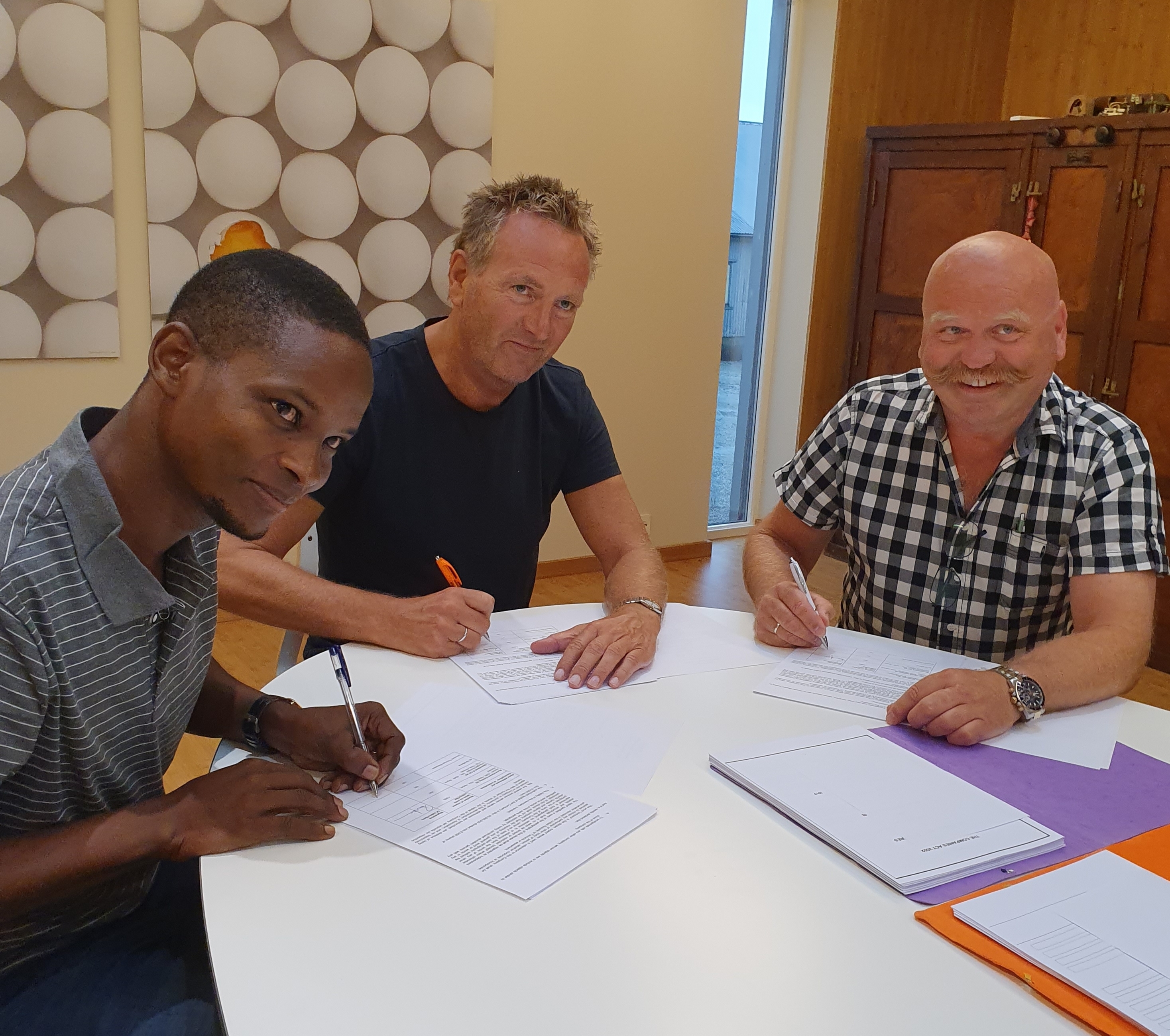
Back in Norway we were more eager than ever and an application had been sent for funding the project to Norad from the Royal Norwegian Society for development. The project plan was to build a facility with 10,000 hens, an administration building, a warehouse and a guardhouse. Furthermore, we were to build up a sales, marketing and distribution organization and build up the parallel to Sunnmørsmat Ltd and Sunnmørsegg on Zanzibar. The plan for a main facility with 10,000 hens was both to quickly get a volume so that we can be able to deliver to the hotel market, but also to get a volume that can cover the costs of such an organization. Our plans were then to build up more than one hundred local small-scale farms, mainly run by women and young people. We were to offer training, mentoring programs and good quality feed as well as take care of sales and quality work.
The project was based on the idea of sustainability, both in terms of replacing imported eggs with locally produced eggs, building an economically sustainable value chain and contributing to a sustainable society. In other words, both social, economic and biological/environmental sustainability, ref. The UN's definition of sustainability. These were exciting days while we were waiteing for an answer from Norad.
Then came the downturn…!
The application to Norad was rejected!
Everything had gone so well and we had met so much goodwill and faith in our project, we now sat and wondered if we should twist thumbs for a year or what we should do
No, a plan had to be made!
We contacted the Royal Norwegian Society for Development and asked if they could make a separate business plan for the part of the plan that dealt with the central unit, the establishment of 10,000 hens and the sales, marketing and distribution organization. They were again benevolent and made such a plan for us. Key questions were how much capital did we have to raise and who should we ask to join us?
After some time we got an overview of this and we planned to establish a limited company on Zanzibar so that we could invite others with us. As the largest owner of Sunnmørsmat Ltd, I committed for most of the capital that was needed. Steinsland & co Ltd was also present. In addition, the family of John John are co-owners, as well as Innocent and Ali Ali who are from Zanzibar and work in the Department of Forestry, and NonRenewable Resources. We made a Shareholder’s Agreement which states that if we succeed in this and the company manages to make money, this money will go to build up small-scale egg producers, mainly women and young people, as well as other aid work in Zanzibar and Tanzania.
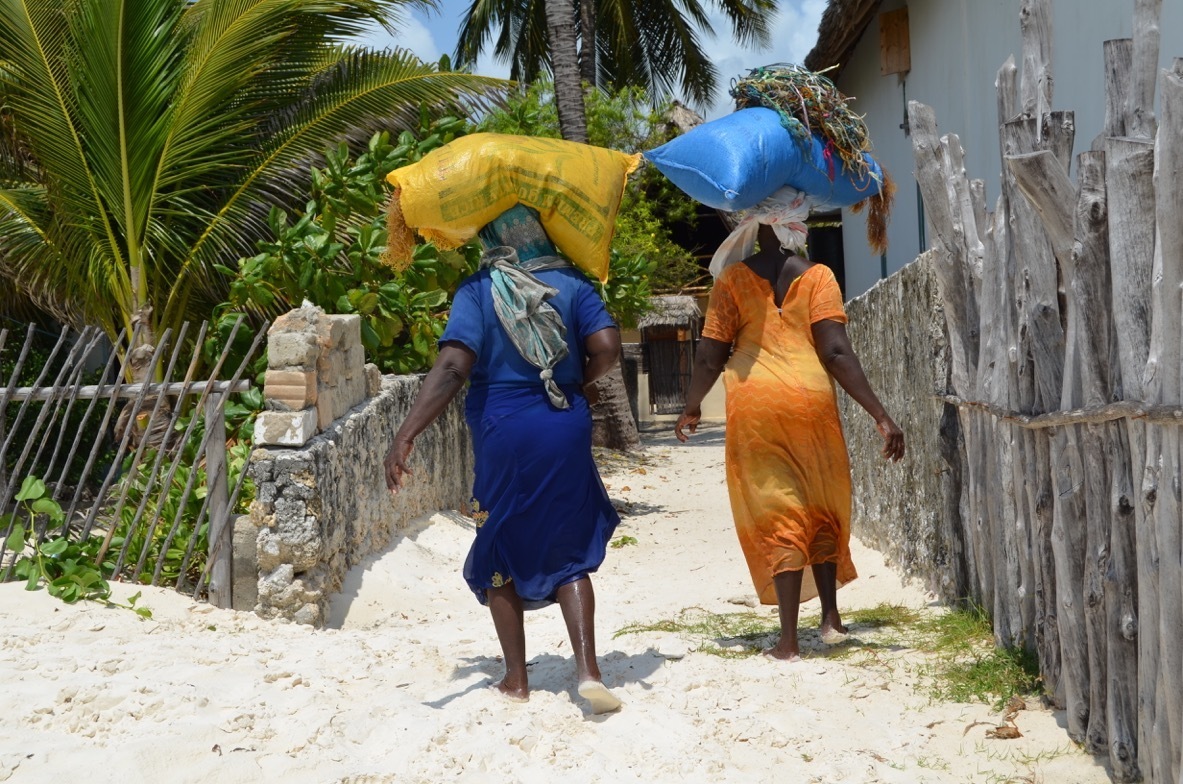
In July 2019 we started to register the company in Zanzibar. Innocent and his family were in Norway and together with Leif we travelled to Steinsland & co Ltd. There were investor agreements and shareholder agreements signed and we were really in the process. We hired a consultant who had worked for the Royal Norwegian Society for development in Dar es Salaam and Innocent started as the CEO in the company. In the autumn and winter of 2019/20 there were many trips to Zanzibar and we traveled from office to office. We found a plot of land that we agreed to buy, but then something came up so we couldn’t build anything there. After three trips we were back to the start and looking for land…. After a while we got a very good collaboration with the authorities on Zanzibar and we found a plot we could buy in Bwejuu.
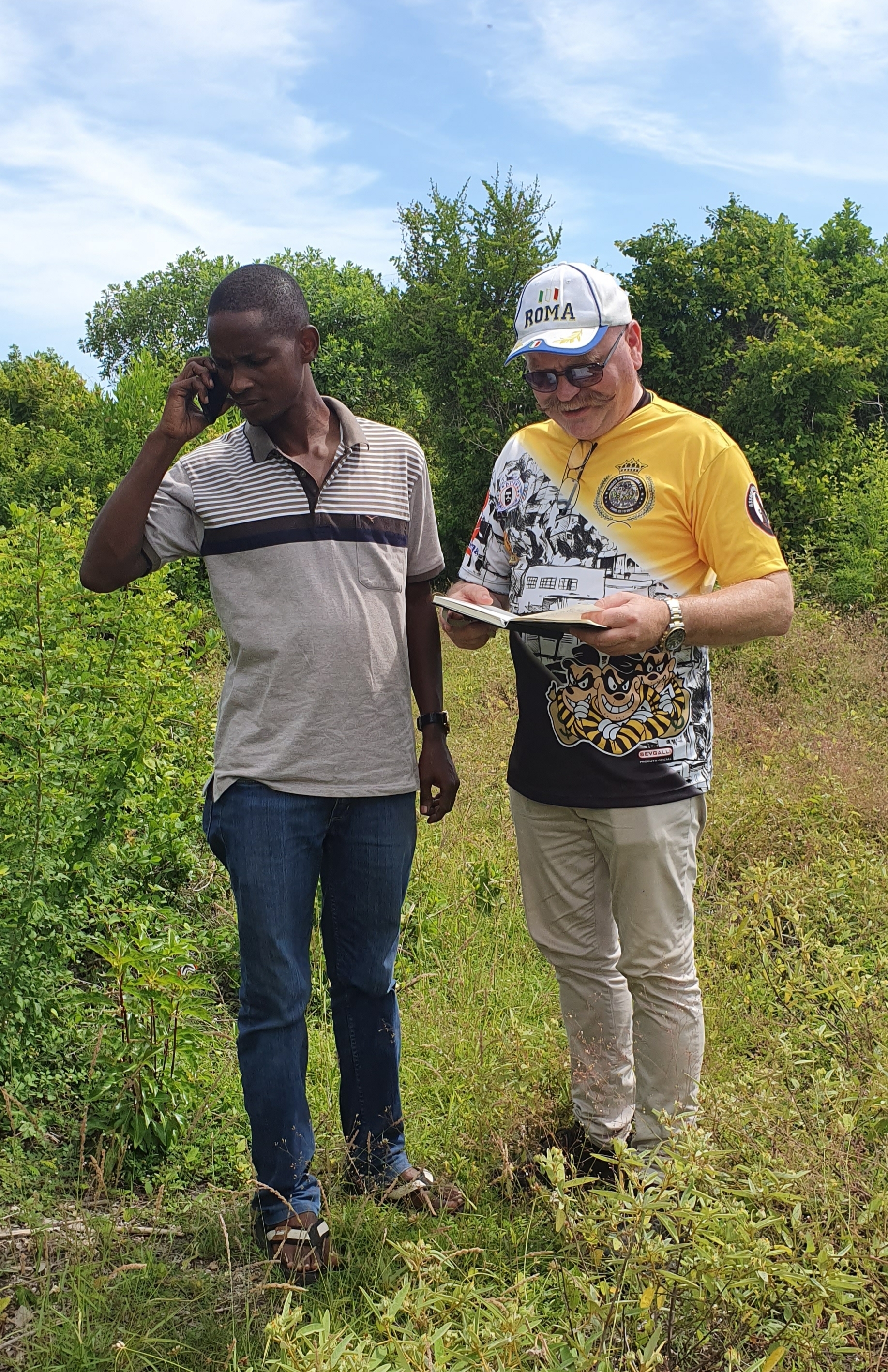
I can not praise Innocent enough for the work he has done both to secure us this plot, the planning of the farm and not the least when it comes to the construction of the facility. Of course, Corona has affected us greatly so that we have not been able to travel down as we had planned. But down there on Zanzibar, the construction process has taken its course and at the time of writing, the buildings will soon be up. There are four hen houses which are divided into five separate rooms as well as an administration building with storage, wardrobes, veterinary office and head office. In addition, there is a guard room with toilet and a room where we can sle
Through the contact with Lars Olav Eik at Ås, we have been introduced to key people at the authorities and the university in Zanzibar. We also have very good contact with the Norwegian embassy in Dar es Salaam and what we are now building up is happening in close cooperation with both local, regional and central authorities in Zanzibar.
The autumn of 2019 was, among others, Tord with us on a trip to Zanzibar. He is a guy with great social commitment. He became very engaged in what we do in Zanzibar and he was on a new trip in February 2020 as well. Furthermore, he has been strongly involved in the association in Norway and he is now chairman of the board there. In Zanzibar, we are now ready to start an NGO, wich will be responsible for helping small-scale egg producers, training and mentoring programs, but also cooperation with, among others, the University of Zanzibar. Together with the Norwegian University of life sciences and several universities in Tanzania, we are now applying for funding to finance this work. We have a strong belief that we will be able to implement this ourselves without any support, but with funding from Norad or other similar sources we could do so much more.
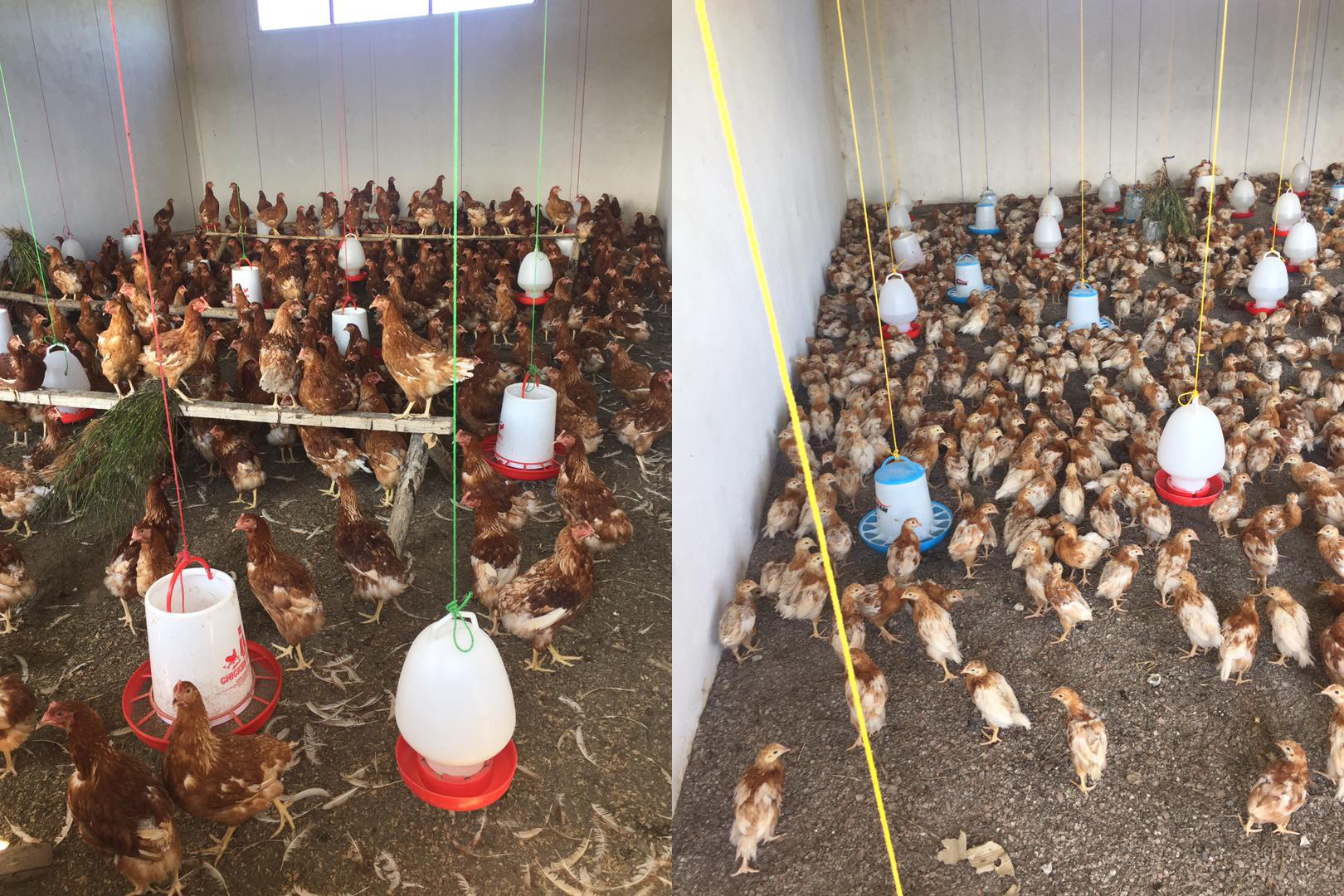
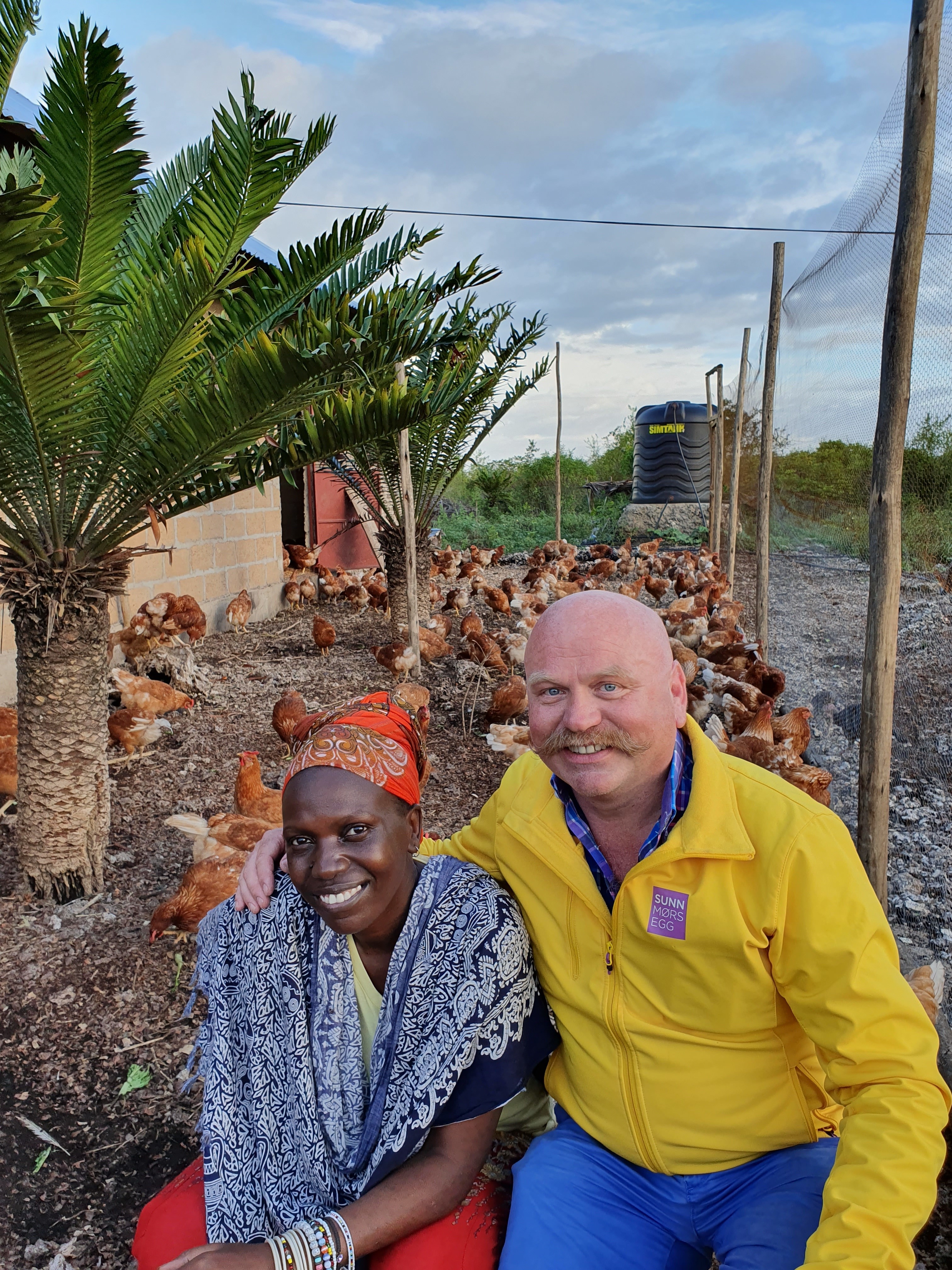
During this time, our goal has developed to not only be about yellow egg yolks, but also to establish production of high quality eggs, we will improve food security, we will replace imported eggs that go to tourists with locally produced eggs and we will help raise food security in general. We want to work with all local producers who want to work with us.
THE PEOPLE BEHIND THE PROJECT
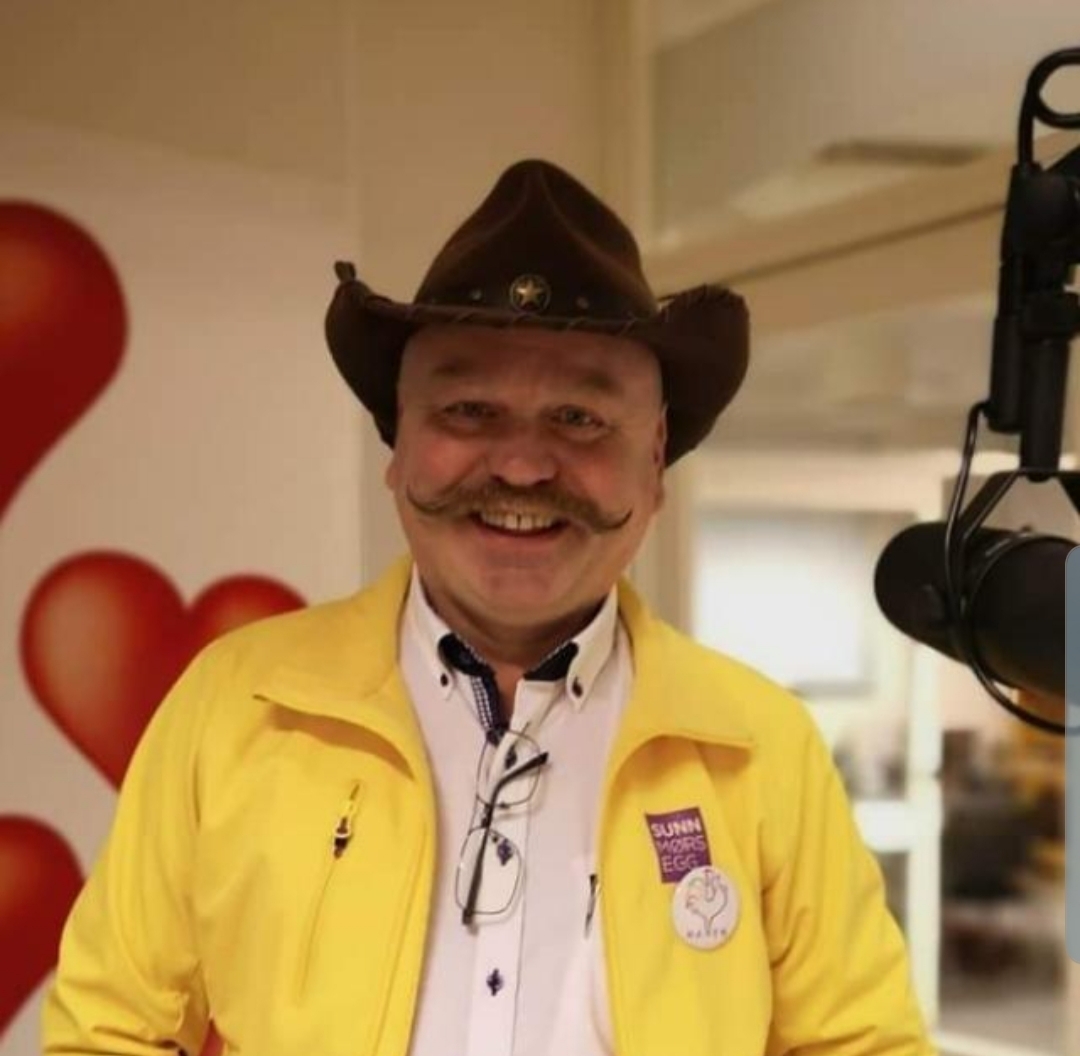
Rune Haram is a farmer with egg, dairy and beef production and CEO of the company Sunnmørsmat Ltd. Rune is an educated in agriculture and has many years of experience in sales and marketing. He has experience from the top level within the agricultural cooperatives in Norway and was in the period 2004 - 2006 chairman of the board for Prior Norway (egg and poultry cooperative) and helped create the current Nortura SA (meat, eggs and poultry cooperative). He has also experience from research and development work in the meat sector.
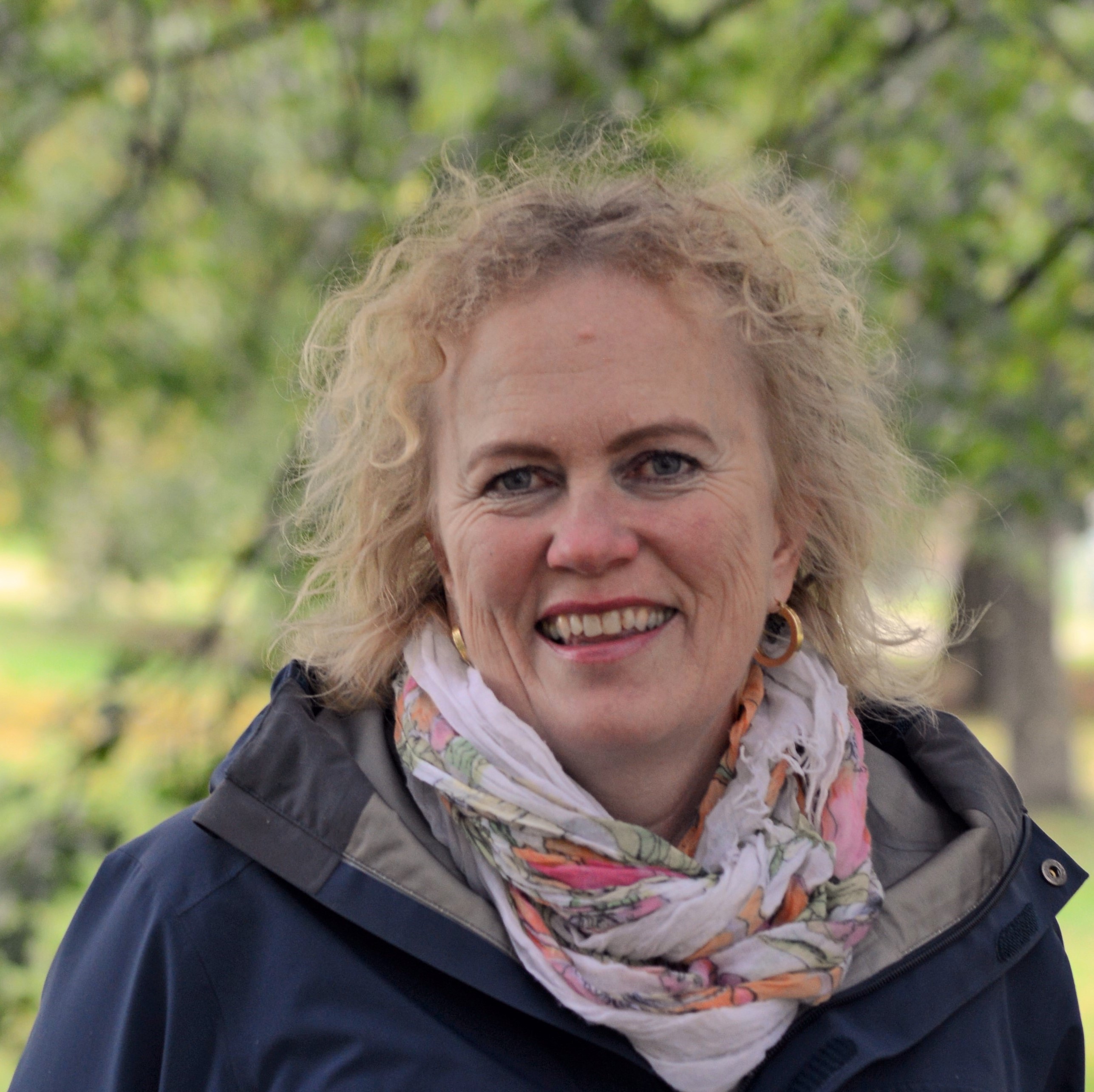
Ellen Alfsen has a master's degree in law from the University of Oslo, and has studied EU law and International comparative private law at the University of La Sapienza in Rome. She has worked as a political adviser to the Christian Democratic Party in the Norwegian Parliament, been a politician in the city of Moss and 1st deputy to the parliament for the Christian democratic party in the county of Østfold.. She has been director for the Norwegian Agriculture's Brussels Office, and now works with policy questions and communication for the Norwegian Forest Owners' Federation. Ellen has extensive experience with international cooperation.
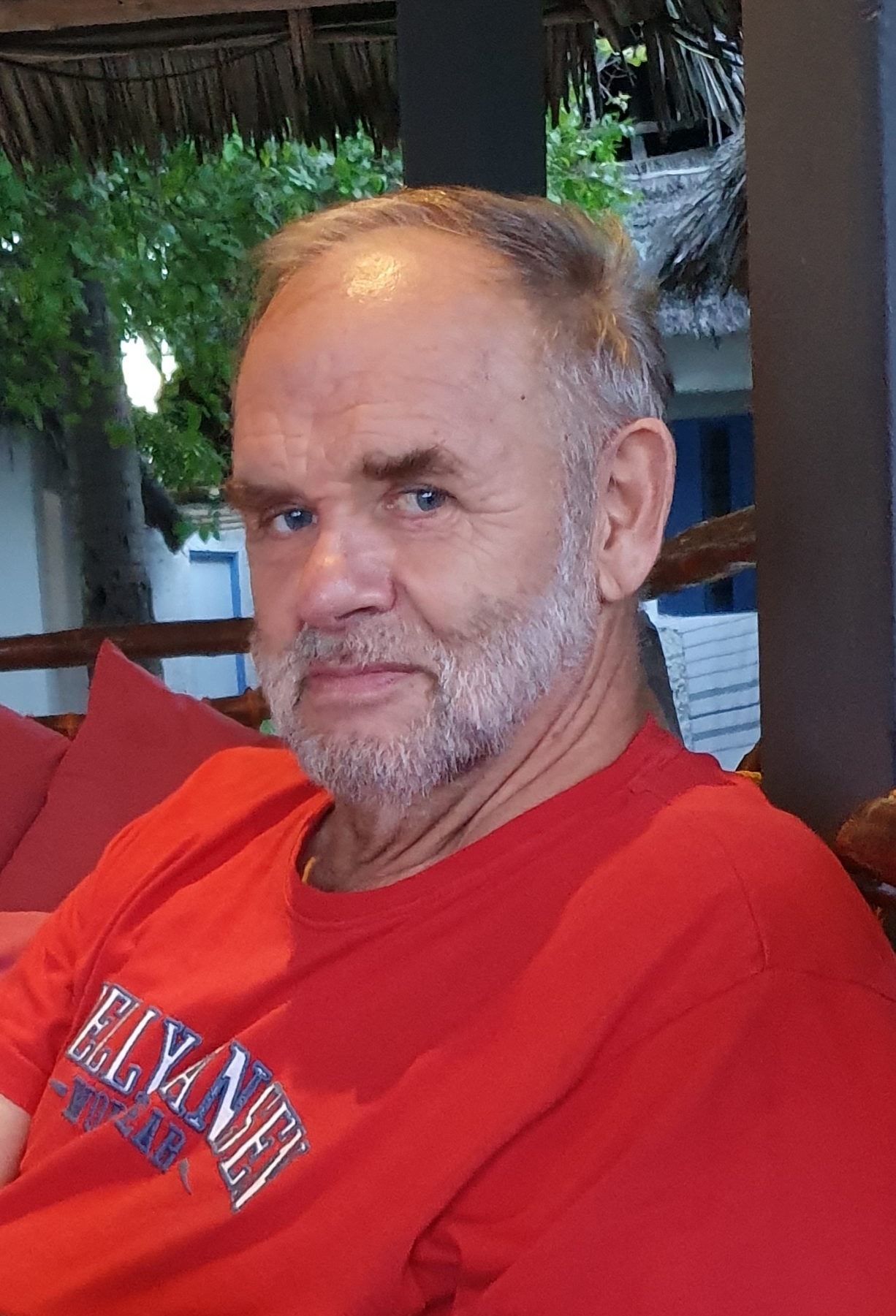
Leif Nordli has been working as a construction contractor for 40 years and is from Elverum, Norway. He has extensive experience from Africa and has, among other things, worked for Norad in Uganda. For the last ten years he has been involved in building up both egg production and hatchery in Dar es Salaam as well as a farm in Kilowa together with Innocent. In this work, he has sent used agricultural tools and building materials from Norway to Tanzania.
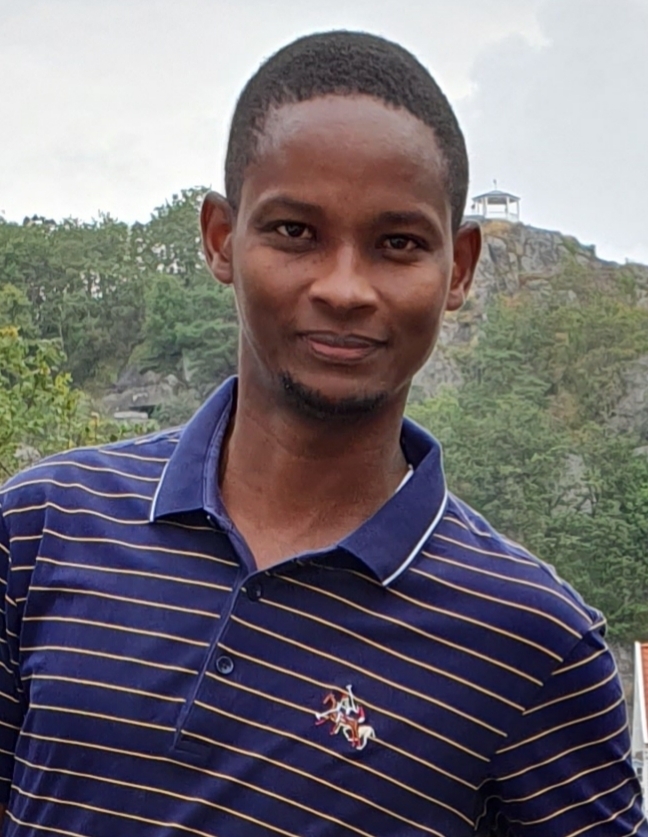
Innocent Thomas Massawe grew up in Moshi, Tanzania and is a trained veterinarian from Tanzania and holds a master in animal production the Norwegian University for Life Sciences (NMBU). He has also worked for a short period in Norway and had three years of compulsory service as a field officer for the government of Tanzania.
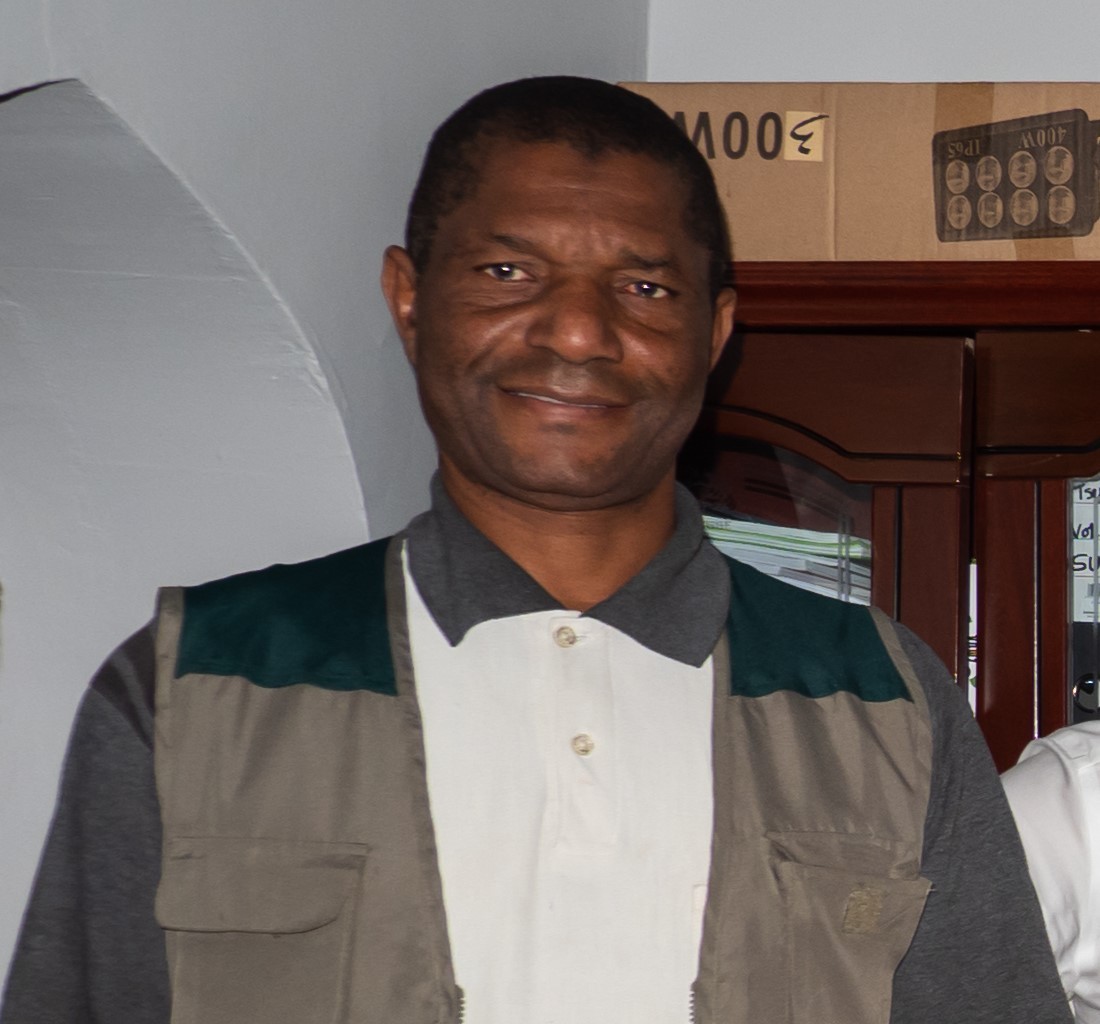
The late Ali Mwinyi was born in Jambiani, Zanzibar and was working in the Department of Forestry, and NonRenewable Resources. He worked with forests and outfields and was responsible for the Jozani Forest National Park. He had collaborated with John John for almost 20 years and was also a board member and co-owner of the company we are building on Zanzibar. Sadly he passed away on the 21. of September 2020. We thank him for everything he contributed with!
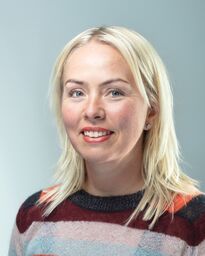
Tone Steinsland is the third generation in the family owned company Steinsland & Co, which hatches and breeds chickens for laying hens. In addition, she is engaged in several positions of trust in agriculture both nationally and internationally. Tone has also lived for 6 years in Australia, and has, among other things, a Master in International Relations from Curtin University. In 2019, she completed AFF / NHH's Solstrand program Accelerate.
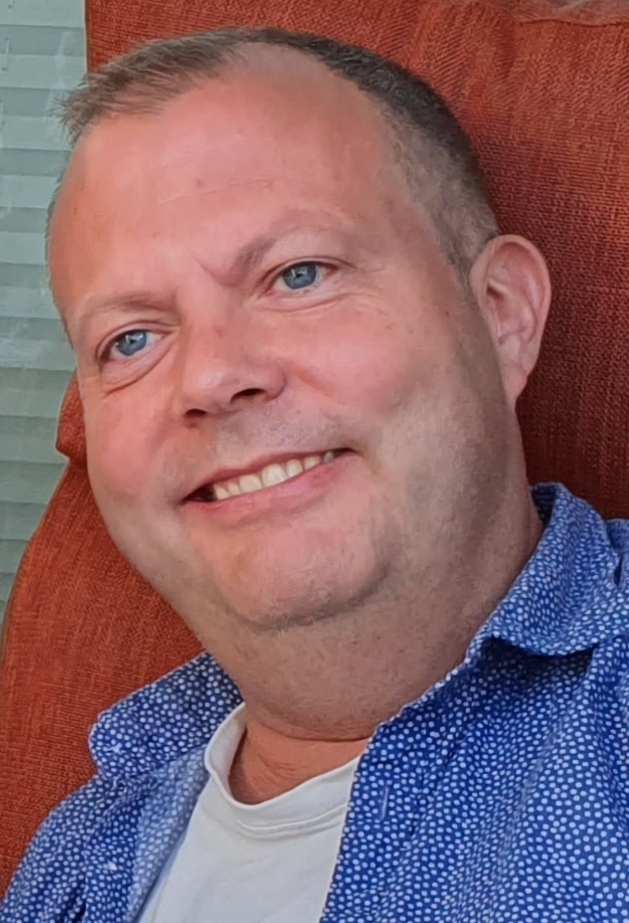
Tord Ripe is the CEO in the company The Cloud People with headquarters in Oslo. He is educated in computer science at Molde University College and has extensive experience in the IT industry. He has also been involved in the leadership of charities.

